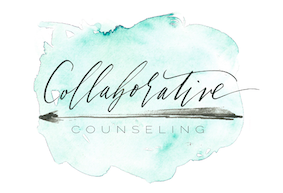Services
INDIVIDUAL COUNSELING
The initial session is called an intake or assessment. During this initial session the individual will complete their forms and meet with the counselor for 90 minutes. A personal history, review of any medications, past therapy, family history, and any medical and /or psychological concerns will be discussed, and then collaboratively working together we will formulate a treatment plan for future appointments.
Before leaving, the client will make several appointments of 50 minutes to then implement the desired goal each individual desires along with the counselor’s guidance.
Your counselor will provide a confidential, safe, judgment-free environment. You can expect some homework from time to time. Effective therapy is one-part counseling and one-part personal work. The only person you can change is yourself- your therapist is there to assist, suggest and guide, but at the end of the day the only one who can make the change is you. Your therapist may also suggest various assessments, teachings on psycho-education and book recommendations to aide in the healing process. Group therapy may also be an option.
COUPLES COUNSELING
The initial session will be 90 minutes with the purpose of gaining the needed information from both partners. We offer many different types of marital therapy or couple’s therapy and those options will be discussed with you at the initial appointment. You may choose to see Charles Wimmer- Pastoral counselor, his wife Buffy Wimmer- MACC, Licensed Professional Counselor or both together. Or one of the other therapist in the group.
We find the most productive appointments are when couples attend together and also schedule individual sessions. We also provide an intensive which consists of 1-3 days of therapy with the couple and individually. An intensive may be discussed at the first appointment. Apart from our own personal experience being married for 39 years, we utilize Prepare/Enrich, research and techniques by Gottman, and the Biblical principles of Two Becoming One by Don and Sally Meridith.
TRAUMA THERAPY
The American Psychological Association defines trauma as: an emotional response to a terrible event like an accident, rape or natural disaster. Immediately after the event, shock and denial are typical. Longer term reactions include unpredictable emotions, flashbacks, strained relationships and even physical symptoms like headaches or nausea. While these feelings are normal, some people have difficulty moving on with their lives. Therapist can help these individuals find constructive ways of managing their emotions. This is what is called a big “T” trauma.
Individuals can also experience small “t” traumas. These are described as smaller or less traumatic events stemming from childhood to young adult that leave a person with similar problems as a large T but not diagnosed with Post Traumatic Stress Syndrome or PTSD. Examples can be name calling in childhood, to trauma in childbirth, divorce, car accidents, etc.
Brainspotting is a revolutionary new therapy for rapid and effective change. It was developed by David Grand, PhD in 2003. Brainspotting is a brain-based therapy treatment that goes beyond the mind to gain direct access to the brain.
The motto of Brainspotting is, "Where you look affects how you feel." If something is bothering you, how you feel about it will literally change depending on whether you look off to your right or to your left. Our eyes and brains are intricately woven together, and vision is the primary way that we, as humans, orient ourselves to our environment. Signals sent from our eyes are deeply processed in the brain. The brain then reflexively and intuitively redirects where we look moment to moment. The brain is an incredible processing machine that digests and organizes everything we experience. But trauma can overwhelm the brain's processing capacity, leaving behind pieces of the trauma, frozen in an unprocessed state. Brainspotting uses our field of vision to find where we are holding these traumas in our brain.
Brainspotting can be used with clients who need to remain grounded during the treatment process, including clients with complex post-traumatic stress disorder (PTSD) and those who are significantly detached from their own experience.
Brainspotting.com is the official website for David Grand, PhD. and it provides comprehensive information about Brainspotting.
Buffy is also trained 40 hours in both Level I and II in EMDR. (Eye Movement Desensitization & Reprocessing). To understand this process please review the information page of EMDR at www.emdr.com .
CHILDREN / TEEN COUNSELING
At Collaborative Counseling Group we seek to provide comprehensive care for the whole family. That's why we are pleased to offer children/ teen counseling sessions for individuals and groups. Our individual sessions begin with a 90-minute intake (or assessment) appointment followed by a series of 40-50 minute sessions recommended by the counselor. In each session, our professional counselor will provide guiding questions and dialogue that is tailored to the child's/ teen's age and emotional aptitude.
Our children/ teen group session is called "Push In". Push In is currently only available for girls and young women, grades 3-12. The group consists of 5 scheduled hour-long sessions incorporating age-appropriate books, activities, and other resources that help develop social/ emotional skills, equipping them with increased self-confidence and developmental skills. For more information, please go to our registration page for Push In.
The initial session is called an intake or assessment. During this initial session the individual will complete their forms and meet with the counselor for 90 minutes. A personal history, review of any medications, past therapy, family history, and any medical and /or psychological concerns will be discussed, and then collaboratively working together we will formulate a treatment plan for future appointments.
Before leaving, the client will make several appointments of 50 minutes to then implement the desired goal each individual desires along with the counselor’s guidance.
Your counselor will provide a confidential, safe, judgment-free environment. You can expect some homework from time to time. Effective therapy is one-part counseling and one-part personal work. The only person you can change is yourself- your therapist is there to assist, suggest and guide, but at the end of the day the only one who can make the change is you. Your therapist may also suggest various assessments, teachings on psycho-education and book recommendations to aide in the healing process. Group therapy may also be an option.
COUPLES COUNSELING
The initial session will be 90 minutes with the purpose of gaining the needed information from both partners. We offer many different types of marital therapy or couple’s therapy and those options will be discussed with you at the initial appointment. You may choose to see Charles Wimmer- Pastoral counselor, his wife Buffy Wimmer- MACC, Licensed Professional Counselor or both together. Or one of the other therapist in the group.
We find the most productive appointments are when couples attend together and also schedule individual sessions. We also provide an intensive which consists of 1-3 days of therapy with the couple and individually. An intensive may be discussed at the first appointment. Apart from our own personal experience being married for 39 years, we utilize Prepare/Enrich, research and techniques by Gottman, and the Biblical principles of Two Becoming One by Don and Sally Meridith.
TRAUMA THERAPY
The American Psychological Association defines trauma as: an emotional response to a terrible event like an accident, rape or natural disaster. Immediately after the event, shock and denial are typical. Longer term reactions include unpredictable emotions, flashbacks, strained relationships and even physical symptoms like headaches or nausea. While these feelings are normal, some people have difficulty moving on with their lives. Therapist can help these individuals find constructive ways of managing their emotions. This is what is called a big “T” trauma.
Individuals can also experience small “t” traumas. These are described as smaller or less traumatic events stemming from childhood to young adult that leave a person with similar problems as a large T but not diagnosed with Post Traumatic Stress Syndrome or PTSD. Examples can be name calling in childhood, to trauma in childbirth, divorce, car accidents, etc.
Brainspotting is a revolutionary new therapy for rapid and effective change. It was developed by David Grand, PhD in 2003. Brainspotting is a brain-based therapy treatment that goes beyond the mind to gain direct access to the brain.
The motto of Brainspotting is, "Where you look affects how you feel." If something is bothering you, how you feel about it will literally change depending on whether you look off to your right or to your left. Our eyes and brains are intricately woven together, and vision is the primary way that we, as humans, orient ourselves to our environment. Signals sent from our eyes are deeply processed in the brain. The brain then reflexively and intuitively redirects where we look moment to moment. The brain is an incredible processing machine that digests and organizes everything we experience. But trauma can overwhelm the brain's processing capacity, leaving behind pieces of the trauma, frozen in an unprocessed state. Brainspotting uses our field of vision to find where we are holding these traumas in our brain.
Brainspotting can be used with clients who need to remain grounded during the treatment process, including clients with complex post-traumatic stress disorder (PTSD) and those who are significantly detached from their own experience.
Brainspotting.com is the official website for David Grand, PhD. and it provides comprehensive information about Brainspotting.
Buffy is also trained 40 hours in both Level I and II in EMDR. (Eye Movement Desensitization & Reprocessing). To understand this process please review the information page of EMDR at www.emdr.com .
CHILDREN / TEEN COUNSELING
At Collaborative Counseling Group we seek to provide comprehensive care for the whole family. That's why we are pleased to offer children/ teen counseling sessions for individuals and groups. Our individual sessions begin with a 90-minute intake (or assessment) appointment followed by a series of 40-50 minute sessions recommended by the counselor. In each session, our professional counselor will provide guiding questions and dialogue that is tailored to the child's/ teen's age and emotional aptitude.
Our children/ teen group session is called "Push In". Push In is currently only available for girls and young women, grades 3-12. The group consists of 5 scheduled hour-long sessions incorporating age-appropriate books, activities, and other resources that help develop social/ emotional skills, equipping them with increased self-confidence and developmental skills. For more information, please go to our registration page for Push In.

